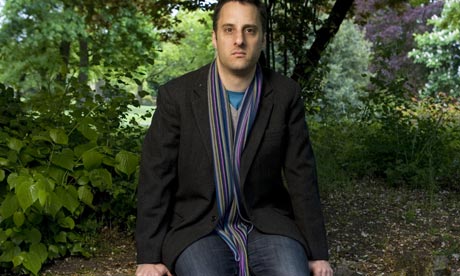
At a recent event at the South Bank, Kazuo Ishiguro confessed to a packed audience that he didn't really get poetry. I couldn't help but nod along with a vague sense of relief and sadness. Relief because I felt exactly the same way, and sadness because that wasn't always the case. In my late teens and very early 20s I read little but poetry, yet over the succeeding 12 years I've only read one collection – WG Sebald's For Years Now – in its entirety, and that was more a case of completism than appreciation of sparse, blank verse. However, just a few weeks ago, a sequence of unrelated events sent me seeking out those thin collections gathering dust on the bottom shelves of my bookcases, cracking their meagre spines to see what I'd been missing. After all those years, I'd begun to get poetry again.
The initial catalyst was Nicholson Baker's new book The Anthologist, a novel of deft and quiet beauty. Among many other things, it's a novel about poetry, poets and those who read them, and its enthusiasm for verse is utterly diverting. In fact if the novel has a real fault – it is an elegant and surprisingly emotional book; one of the finest of the year – it's that the discussion of poetry is so compelling it runs the risk of sending the reader off to discover the poems Baker is describing. I did this only once, for Elizabeth Bishop's The Fish.
Around the same time, the new edition of The Reader arrived. In it Brian Nellist provided a witty and considered argument for the reading of poetry. Fine though it was, however, I wasn't quite converted: that took a whole day of readings and discussions hosted by Jonathan Cape at Foyles.
The day began with Adam Foulds reading from his Costa prize-winning poem The Broken Word. Though his voice was bright and lucid I wasn't convinced a narrative poem about the Mau Mau uprising was going to change any of my preconceptions. I expected the work to be dry, earnest, proficient to the point of tedium, but this was far from the case, especially when he read the line: "This Jenkins, half remembered, had a tweed moustache." I was unpicked by the readiness and precision of this image, which was quickly followed by one of waxed hair so "fastidiously flat / it looked like a lick of paint". Something flickered inside me; something approaching genuine enjoyment.
This was then ignited during a lively and instructive panel discussion. Michael Symmons Roberts – whose reading was perhaps the most engaging of the day – made a strident case for poetry needing to be read in an entirely different way from fiction. The dominance of the novel and the expectations it has engendered, he argued, have left a large readership unable to view a poem with the care, diligence and patience it requires. Like music, he went on, poetry gains from repeated experience and it has more in common with songs than novels. I appreciate this is hardly breaking news, but it did crystallise for me where I'd been going wrong in my approach to poetry.
Dave Eggers – according to Nick Hornby's 31 Songs – has a theory that we listen to certain songs over and over again to "solve" them. Once solved, they are pushed out in favour of new tracks to work through. This is fine for a three-minute pop ditty you can listen to while jogging or washing the car, but if you're going to do the same for a poem, you're going to need a lot more time and attention. Which means it's very easy not to bother in the first place.
Poetry's image, I think, is its great barrier. Poetry means hard work, school and possibly university, time – what it isn't is the easy option. For this reason it's tempting to leave it to those who write it, to those who wish to be known as poets. Essentially this is how contemporary poetry has managed to survive into the 21st century – it's become a self-sufficient industry that requires no one from outside its borders to keep it going.
This insularity can be off-putting, but thanks to these three fortuitous events, I've begun to see the point in poetry – in the process rediscovering the joys of old favourites (Frank O'Hara, Auden) and finally reading collections I've somehow accumulated over the years (Pascale Petit's The Zoo Father, John Stammers's Panoramic Lounge Bar). I may not ultimately get poetry – but finally I'm getting there.

